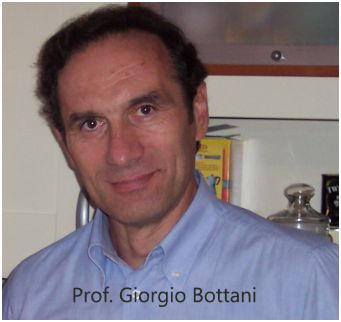Today a person from 75 years of age is considered elderly, compared to 65 up to now considered the beginning of seniority; from the food point of view, there are some precautions that should be put in place already from about 60 years old, to best achieve a “successful aging”.
Often, in the diet of the elderly there is a shortage of fresh fruit and vegetables, in addition to proteins, vitamins and mineral salts are also not sufficiently consumed. Supplements can help counteract the nutritional deficiencies typical of this age.
Also pay attention to hydration: the elderly drink little. The most important benefits of proper hydration are: the elimination of toxic catabolites that accumulate daily in our body and which, if not regularly eliminated, can cause various ailments. Drinking is also important for filling up with energy. Actually said so it may not be clear, in fact the water is devoid of caloric nutrients from which to produce energy. But if we think about it for a moment, practically all the chemical reactions that take place in our body take place in the presence of water. Furthermore, let’s not forget the great support that fruits and vegetables provide to the intestine, where most of the cells of the immune system are located. The health of the organism largely depends on the correct functionality of this organ: the consumption of products containing probiotics, such as yogurt and kefir, is always very useful.
A very frequent risk in the eating habits of the elderly is the excessive consumption of carbohydrates which consequently limits the intake of proteins.
Meat, fish, eggs, legumes, cheeses are the building blocks of our muscles. Having good muscle mass is synonymous with health for everyone. The lack of the right protein intake can even lead to sarcopeniawhich consists of an excessive loss of muscle mass.
Especially in elderly people this pathology is highlighted, which manifests itself not only in poor muscle tone, but also in a greater predisposition to infections and neurodegenerative diseases. Sarcopenia represents a serious problem in the elderly and is growing exponentially. The loss of muscle mass is physiological from the age of 50, but when it becomes excessive then it evolves precisely into sarcopenia. A sarcopenic elderly person will be one who is more prone to falls and more susceptible to infections, neurodegenerative diseases such as senile dementia or Alzheimer’s or cancer.
It is therefore important that proteins are present in the main meals. Is Too Much Meat Bad? True, even if it is good not to demonize it: the best advice is not to consume it more than three times a week and to prefer white meat. Therefore, we can focus on varying sources often, in particular by increasing the consumption of vegetable proteins like all legumes, but also fish and eggs.
The elderly have a decidedly increased risk for malnutrition, which results not only in excessive weight loss (which is easily understood), but very often also in a frank overweight and obesity. In fact, loneliness accompanied by a justifiable listlessness in preparing meals as well as frequent problems with chewing or digestion, leads the elderly to a strong repetition of food and a lack of variety.
Last but not least is the frequency of meals during the day. Making small snacks is generally useful to keep the metabolism active, as long as they do not exceed 5% of the total daily calories. Green light for fresh or dried fruit, yogurt and tea, according to the season. On the other hand, you should never skip breakfast: your body needs nutrients in the morning.
This is due to two main reasons: The first is that it is not good to go to bed too late, because we sleep too little and therefore in the morning we tend to avoid the “ritual” of breakfast. The second is that a dinner that is excessively caloric or too rich in fatty foods causes a feeling of satiety to persist for a long time, even until the morning, with caloric accumulation. This habit is deeply wrong because it favors the establishment of a vicious circle, which will lead to not eating enough in the first part of the day, when we would need it most, and vice versa to exceeding in the second part, especially in the evening, when it would be better. eat lightly, even to rest better.
In the diet of the elderly, refined carbohydrates (sugars) with a high glycemic index should be limited as much as possible, and in general all foods rich in saturated fats and salt (cured meats and aged cheeses for example), which are particularly harmful for the elderly. And if a little bit of wine with meals can do you good, spirits are to be abolished.
Prof. Bottani
Disclaimer:
All the articles written by the undersigned, make use of the major sites and documents based on evidence, where necessary the source of the news will be mentioned: they DO NOT replace the health chain of control and diagnosis of all the figures in charge, such as doctors. Only a doctor can diagnose and prepare a treatment plan.
Sources may be out of date and at the state of the art there may be treatments, diagnoses and improved pathways compared to the article.
Images, logos or contents are the property of those who created them, whoever is portrayed in the photos has given their implicit consent to the publication.
The people interviewed speak in a personal capacity, so they take full responsibility for the utterance and for the contents.
The undersigned and Sanremonews in this case are not responsible.
The Nurse is a graduate health professional whose job is the administration of care, symptom control and the culture of Health Education.
Roberto Pioppo
